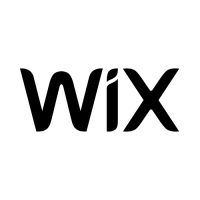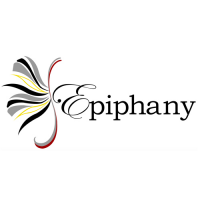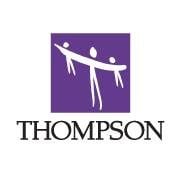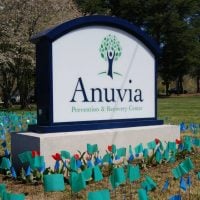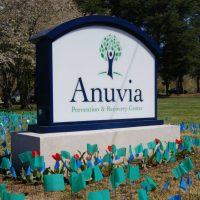Queen City Treatment Center
Drug Rehab Center in Charlotte, North Carolina
Queen City Treatment Center is an accredited facility that offers personalized treatment plans and evidence-based therapies to individuals struggling with substance abuse, in order to help them transition successfully to a life of sobriety.
About This Charlotte, NC Facility
Queen City Treatment Center located in Charlotte, North Carolina is a nationally-accredited and licensed substance abuse treatment center dedicated to providing comprehensive care for those struggling with addiction. Their programs are tailored to meet each individual’s unique needs, offering a range of services from inpatient and residential to intensive outpatient treatment and counseling. All services are provided in a safe, comfortable and supportive environment and are delivered by caring and experienced professionals.
Queen City Treatment Center offers an integrated approach to recovery that includes a blend of evidence-based treatments, such as cognitive-behavioral therapy, motivational interviewing, and relapse prevention education. Additionally, they provide holistic therapeutic services to complement the traditional treatments such as yoga, meditation, art and music therapy, and spiritual counseling. These programs are designed to help individuals gain the skills and confidence to lead a life of recovery, while creating a healthier, happier lifestyle.
Queen City Treatment Center is accredited by the Commission on Accreditation of Rehabilitation Facilities (CARF) and is licensed by the North Carolina Department of Health and Human Services. They also have been awarded the American Private Healthcare Accreditation and have recently been recognized by the National Association of Addiction Treatment Providers as one of the top ten providers of addiction treatment in the United States. Furthermore, they are committed to providing excellent service and have earned a five-star rating from their patients.
Genders
Ages
Modality
Additional
Accreditations
State License
SAMHSA

CARF
The Commission on Accreditation of Rehabilitation Facilities (CARF) is a non-profit organization that specifically accredits rehab organizations. Founded in 1966, CARF's, mission is to help service providers like rehab facilities maintain high standards of care.
Conditions and Issues Treated
Recovering from any type of substance abuse is a long process, but it is one of the most worthwhile and life changing events any addicted person will ever go through. This is a combination of detoxing the body, rehabilitation, and recovery. There is also therapy, aftercare, and support during the entire process.
While substance abuse can take over a person’s life, it is something that can also be overcame by professionals at Queen City Treatment Center in Charlotte, NC
With so many people struggling with opioid addiction, opioid addiction treatment is more critical than ever before. Patients often take opioids when they face a painful injury. When someone begins taking opioids such as Vicodin or oxycodone differently than how the medications were prescribed, this points to opioid addiction.
Stopping these types of medications abruptly is not safe. That is where opioid addiction treatment at Queen City Treatment Center in Charlotte, NC comes in. Most opioid addiction treatment facilities start with detox and move to rehabilitation services while providing medical support during the process.
Getting over an opioid addiction takes time and determination, but with the right support and resources, those struggling with opioid addiction can recover and move forward with their lives.
Levels of Care Offered
This center offers a variety of custom treatment tailored to individual recovery. Currently available are Aftercare Support, Detox, Drug Rehab, Outpatient, with additional therapies available as listed below.
Detox is a drug rehab process that begins before the actual drug rehab treatment. It is used to remove any residual toxins left in your body (and brain) after using drugs, and it is used with the intent to help you or your loved one complete drug rehab.
If you are addicted to opiates like heroin, methadone, or prescription painkillers, you will detox with medication. This is because the withdrawal symptoms are often more intense and uncomfortable for an opiate addict than for someone who has abused or is dependent on other drugs, like cocaine.
Detox alone will not make you stop using drugs; it is a process that allows you or your loved one to get ready for the next step of rehab.
Outpatient treatment can be considered the lowest intensity level of addiction treatment in Charlotte, NC. It is ideal for early phase addiction or lower intensity addictions. Queen City Treatment Center peer group support, 12-step programs, and individual counseling may still be involved.
Aftercare support plays an important role when sustaining a patient’s full recovery at Queen City Treatment Center. Patients also receive assistance in making living arrangements in halfway houses. Career counseling is available for those who want a fresh start. There are also local community programs in Charlotte, NC such as Alcoholics Anonymous.
Queen City Treatment Center‘s Therapies & Programs
Individual professional counseling or individual therapy refers to the one-on-one interaction between a patient and his or her counselor. Individual therapy allows for more privacy, one that group interactions can’t provide. Therefore, it becomes easier for a person to unload and become more open to his or her counselor.
Another benefit of individual therapy at Queen City Treatment Center in Charlotte, NC is that all sessions aim to speed up a single person’s progress. It makes it easier for the counselor and the patient to deal with the central issues, which are likely the culprits of substance addiction.
Once the roots of the problems are addressed, it becomes less challenging for a recovering patient to maintain sobriety and brush off temptations.
Families are not always as supportive as they could be, but by opting for family therapy, many recovering addicts are able to understand their addiction and get the support they need to get sober. These therapy sessions at Queen City Treatment Center in Charlotte, NC involve all members of the family who play a role in the recovering person’s daily life. They work together to overcome past issues, avoid triggers, and remain strong and supportive of each other.
Cognitive behavioral therapy (CBT) is a way of addressing concerns through talking. Talking through issues can identify sources of discomfort or unhealthy thoughts. CBT is a healthy way Queen City Treatment Center addresses some behaviors which may be bringing unintended consequences in a persons life.
Rational Emotive Behavior Therapy (REBT) is a type of cognitive therapy. It is based on the principle that irrational thoughts are responsible for the emotional and behavioral changes in addiction. The therapy starts with identifying the underlying irrational thoughts. These thoughts are then challenged and opposed logically and then replaced with positive thoughts.
Payment Options Accepted
For specific insurance or payment methods please contact us.
Additional Details
Specifics, location, and helpful extra information.
Charlotte, North Carolina 28215 Phone Number(704) 532-4262 Meta DetailsUpdated November 25, 2023
Staff Verified
Patient Reviews
There are no reviews yet. Be the first one to write one.
Charlotte, North Carolina Addiction Information
North Carolina ranks 29th in the nation for overall substance abuse. Many of the drugs abused in the state are illicit, and many of these are opioids. Prescription opioids are readily available due to the high rates of medical workers prescribing them. The number of prescriptions has increased tenfold since the 1980's. Opioid overdoses are the most common type of death in North Carolina.
4.3% of Charlotte residents aged 12 and older reported using illicit drugs. There are over 60,000 people addicted to drugs in Charlotte, North Carolina. This harms the community and contributes to crime and other social problems. Medication-assisted treatment is often used in conjunction with other forms of treatment, such as therapy, and can be very successful in helping someone overcome addiction.
Treatment in Nearby Cities
- Asheboro, NC (61.3 mi.)
- Nags Head, NC (291.3 mi.)
- Kings Mountain, NC (34.9 mi.)
- Dobson, NC (81.0 mi.)
- Ellenboro, NC (58.9 mi.)
Centers near Queen City Treatment Center
The facility name, logo and brand are the property and registered trademarks of Queen City Treatment Center, and are being used for identification and informational purposes only. Use of these names, logos and brands shall not imply endorsement. RehabNow.org is not affiliated with or sponsored by Queen City Treatment Center.




